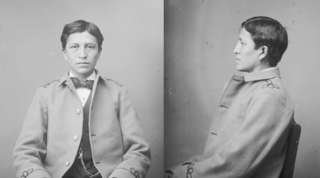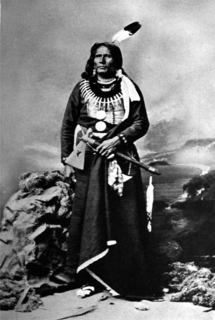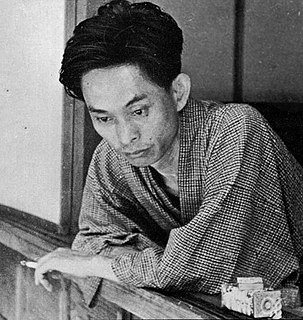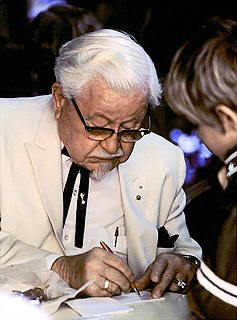A Quote by Luther Standing Bear
The old Lakota was wise. He knew that a man's heart away from nature becomes hard.
Related Quotes
A nature wise With finding in itself the types of all, With watching from the dim verge of the time What things to be are visible in the gleams Thrown forward on them from the luminous past, Wise with the history of its own frail heart, With reverence and sorrow, and with love, Broad as the world, for freedom and for man.
Much has been said of the loneliness of wisdom, and how much the Truth seeker becomes a pilgrim wandering from star to star. To the ignorant, the wise man is lonely because he abides in distant heights of the mind. But the wise man himself does not feel lonely. Wisdom brings him nearer to life; closer to the heart of the world than the foolish man can ever be. Bookishness may lead to loneliness, and scholarship may end in a battle of beliefs, but the wise man gazing off into space sees not an emptiness, but a space full of life, truth, and law.
Our nature is to worship, but unless that element is directed towards God it becomes "a senseless impersonal force, carrying us away in its momentum. It becomes a search for ecstasy - no matter what kind achieved through destruction...The worshipful integraton of nature in the person is inverted in a hellish imprisonment of the individual in nature."
The truth is, part of me is every age. I’m a three-year-old, I’m a five-year-old, I’m a thirty-seven-year-old, I’m a fifty-year-old. I’ve been through all of them, and I know what it’s like. I delight in being a child when it’s appropriate to be a child. I delight in being a wise old man when it’s appropriate to be a wise old man. Think of all I can be! I am every age, up to my own.
Because who would ever want to get close to another person if they knew how hard the letting-go part was? In your heart they only die a little at a time, don't they? Like a plant when you go away on a trip and forget to ask a neighbor to poke in once in awhile with the old watering-can, and its so sad—
When an old man and a young man work together, it can make an ugly sight or a pretty one, depending on who's in charge. If the young man's in charge or won't let the old man take over, the young man's brute strength becomes destructive and inefficient, and the old man's intelligence, out of frustration, grows cruel and inefficient. Sometimes the old man forgets that he is old and tries to compete with the young man's strength, and then it's a sad sight. Or the young man forgets that he is young and argues with the old man about how to do the work, and that's a sad sight, too.
The easy way is efficacious and speedy, the hard way arduous and long. But, as the clock ticks, the easy way becomes harder and the hard way becomes easier. And as the calendar records the years, it becomes increasingly evident that the easy way rests hazardously upon shifting sands, whereas the hard way builds solidly a foundation of confidence that cannot be swept away.
































